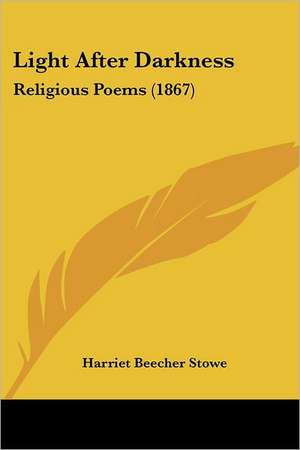Light After Darkness
Autor Harriet Beecher Stoween Limba Engleză Paperback – oct 2008
Preț: 188.39 lei
Nou
Puncte Express: 283
Preț estimativ în valută:
36.05€ • 37.74$ • 29.83£
36.05€ • 37.74$ • 29.83£
Carte tipărită la comandă
Livrare economică 01-07 aprilie
Preluare comenzi: 021 569.72.76
Specificații
ISBN-13: 9781437048254
ISBN-10: 1437048250
Pagini: 132
Dimensiuni: 152 x 229 x 7 mm
Greutate: 0.2 kg
Editura: Kessinger Publishing
ISBN-10: 1437048250
Pagini: 132
Dimensiuni: 152 x 229 x 7 mm
Greutate: 0.2 kg
Editura: Kessinger Publishing
Notă biografică
Harriet Elisabeth Beecher Stowe (June 14, 1811 - July 1, 1896) was an American abolitionist and author. She came from the Beecher family, a famous religious family, and is best known for her novel Uncle Tom's Cabin (1852), which depicts the harsh conditions for enslaved African Americans. The book reached millions as a novel and play, and became influential in the United States and Great Britain, energizing anti-slavery forces in the American North, while provoking widespread anger in the South. Stowe wrote 30 books, including novels, three travel memoirs, and collections of articles and letters. She was influential for both her writings and her public stances and debates on social issues of the day. Uncle Tom's Cabin was published on March 20, 1852, by John P. Jewett with an initial print run of 5,000 copies. The goal of the book was to educate Northerners on the realistic horrors of the things that were happening in the South. The other purpose was to try to make people in the South feel more empathetic towards the people they were forcing into slavery. After the start of the Civil War, Stowe traveled to the capital, Washington, D.C., where she met President Abraham Lincoln on November 25, 1862. Stowe's daughter, Hattie, reported, "It was a very droll time that we had at the White house I assure you... I will only say now that it was all very funny-and we were ready to explode with laughter all the while." Stowe's son later reported that Lincoln greeted her by saying, "so you are the little woman who wrote the book that started this great war."
